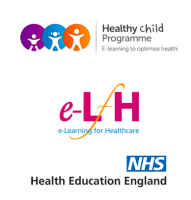Gathering Information and Exploring Sensitive Issues for Paediatrics professionals



Young people sometimes have health problems that they perceive as embarrassing or sensitive. This session describes some steps that health professionals can take to encourage young people to share information about such problems.
Learning Objectives
By the end of this session you will be able to:
- Identify levels of risk in consultations with young people
- Identify issues that young people may consider to be sensitive or embarrassing
- Consider how to encourage a young person to discuss ‘hidden agendas’ and ‘passport symptoms’
- Practice approaches that develop trust and empathy in consultations
- Evaluate approaches to discussing issues about sexual health, psychological health, and health behaviours with young people
One of the main purposes of any health consultation is to find out about the young person’s problem or the reason that they have come to see you. The extent to which you are able to do this depends on both the nature of the problem itself and the relationship that you develop with the young person.
Young people may be reluctant to disclose sensitive or embarrassing problems. There is often also a difference between what young people perceive as sensitive or embarrassing issues, and what health professionals consider these to be. Young people may present such problems indirectly rather than explicitly, and health professionals need to be aware of the clues to this. It is also helpful to have a framework for enquiring directly about such problems in order to aid disclosure.
Before commencing this session you should complete the following AH sessions:
- 04_001 Communication Skills in Young People (401-0018)
- 04_002 Health Communication and Young People: Setting the Scene (401-0019)
Dick Churchill is a GP in Nottingham and former Associate Clinical Professor at the University of Nottingham. He has both clinical and academic interests in the health of young people and in mental health issues. He is a member of the RCGP Adolescent Health Group and a founder of the Association for Young People’s Health.


Dr Deborah Christie is a Consultant Clinical Psychologist, Honorary Reader and Clinical Lead for Paediatric and Adolescent Psychological Services at University College London Hospitals NHS Foundation Trust. She works with young people searching for ways to live with chronic illness including diabetes, obesity, arthritis, chronic fatigue and chronic pain syndromes. Current research interests include neuropsychological outcomes in children and adolescent survivors of meningitis, quality of life measures in chronic illness and the development of effective multidisciplinary interventions for diabetes and obesity in children and adolescents.
- Protecting Families/Resilience course for Paediatr...
- Posted By eIntegrity Healthcare e-Learning
- Posted Date: 2024-12-21
- Location:Online
- This session aims to explain the concept of resilience in childhood and why it is important. It will...
- Safeguarding Overview course for Paediatricians
- Posted By eIntegrity Healthcare e-Learning
- Posted Date: 2024-12-21
- Location:Online
- This safeguarding session will help you decide what level of child protection training you need and ...
- Toileting : Bladder and Bowel Control course for P...
- Posted By eIntegrity Healthcare e-Learning
- Posted Date: 2024-12-21
- Location:Online
- This session describes the process through which children gain continence. In addition this session ...
- Young People as Experts for Paediatrics profession...
- Posted By eIntegrity Healthcare e-Learning
- Posted Date: 2024-12-21
- Location:Online
- This session considers the young person with a chronic condition as the expert in terms of participa...
- Vocational Readiness in Long-term Conditions and D...
- Posted By eIntegrity Healthcare e-Learning
- Posted Date: 2024-12-21
- Location:Online
- This session addresses the impact of having a long-term condition and disability during adolescence ...








